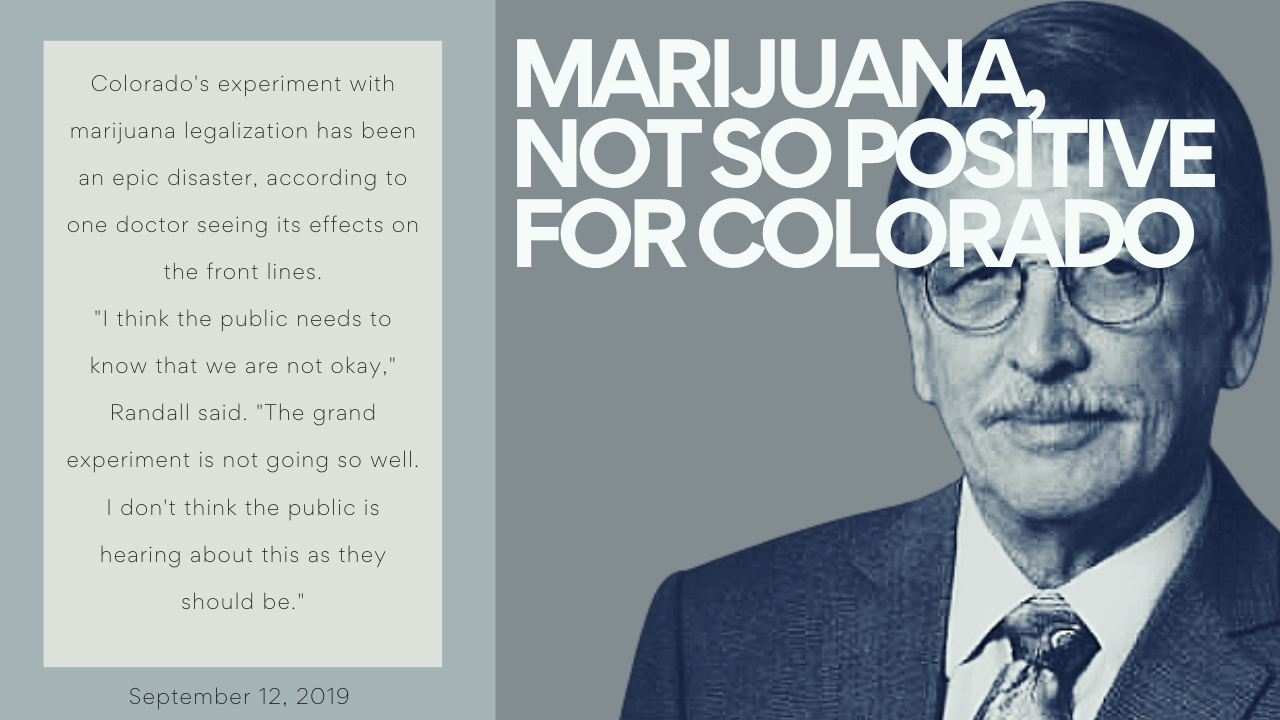Posted on November 16, 2022 View all news
By Joe Tilton
This article comes through “The Washington Free Beacon,” written by Charles Lehman. Dr. Randall is a regular contact for the Lakeview Area News, as is Dr. Libby Stuyt, a psychiatrist, who also practices in Pueblo, Colorado. These doctors see the weed catastrophe from different medical practices.
Lehman writes: Colorado’s experiment with marijuana legalization has been an epic disaster, according to one doctor seeing its effects on the front lines.
Dr. Karen Randall, an emergency room physician certified in “cannabis science and medicine,” said the legalization of marijuana has damaged, rather than helped, her home state. Randall, who spoke alongside former White House drug czar John Walters at the right-leaning Hudson Institute on Friday, said the public is being misled about the effects of recreational marijuana.
“I think the public needs to know that we are not okay,” Randall said. “The grand experiment is not going so well. I don’t think the public is hearing about this as they should be.”
In 2012, Colorado and Washington become the first states in the nation to legalize marijuana for recreational use. The Centennial State is often pointed to as a success story with more than $1 billion in tax revenues generated since legalization. Eight more states followed in approving recreational use.
While the country has plowed ahead with marijuana legalization, less attention has been paid to potential downsides of the weed market. Randall said legalization has brought with it high-potency dope: The average joint in Colorado, she says, now contains 20 milligrams of THC, 10 times as much as the average joint at Woodstock. Concentrated products, sometimes called “shatter,” with potency up to 99-percent.
“My fellow physicians don’t understand, they don’t understand the potency that we’re dealing with in Colorado at this point,” Randall said. “The potency has dramatically increased.”
Randall has seen a “marked increase in medical problems” at the emergency room she works at in Pueblo, Colo. She’s experienced increased admissions for cannabis-related nausea and cardiac issues. Dr. Randall is likely not alone. One recent study found a three-fold increase in marijuana-related admissions in the aftermath of legalization.
At the same time many patients use legal marijuana heavily under the misguided impression that it has medical benefits, according to Dr. Randall. She cited one patient who used marijuana to treat his brain cancer—unsurprisingly, without success.
“Patients routinely use a gram a day, five grams a day,” she said. “Why? It’s okay, it’s legal, it’s healthy, the industry has said it will cure all kinds of diseases.”
The Colorado state government is also working to perpetuate this belief. Randall cited the state’s recent decision to add Autism Spectrum Disorder to the list of conditions eligible for treatment with medical marijuana, which specifically permits the drug’s use by minors. The Autism Science Foundation says there is “limited research, and no evidence, on the potential short-term, long-term or neurodevelopmental risks and benefits of medical marijuana or its related compounds in ASD.”
There is, however, evidence that marijuana adversely affects developing brains. The U.S. surgeon general warned that chronic teen marijuana use negatively affects IQ, school performance, and is even linked to psychotic disorders including schizophrenia.
Randall said the state government has not only ignored scientific findings about marijuana’s effects to push sales, but failed in the regulatory responsibility it promised would accompany legalization. The surgeon general’s report noted that marijuana use during pregnancy is linked to “adverse outcomes, including lower birth weight.” A recent study of Colorado dispensaries found that 69 percent recommended women use marijuana anyway, with some actually discouraging mothers from telling their doctors about their drug use.

